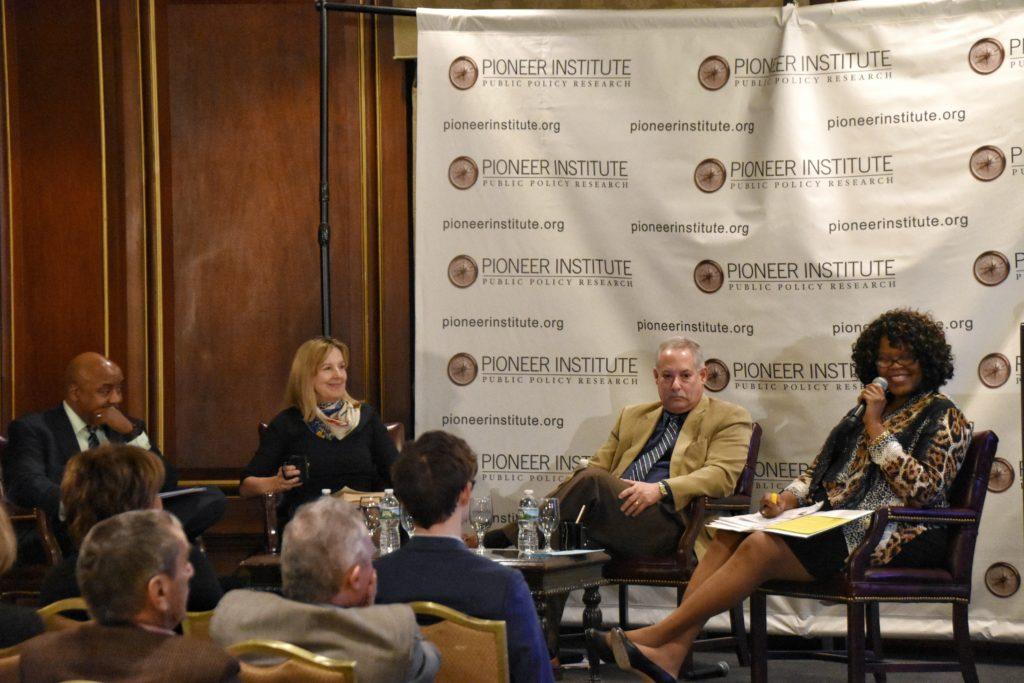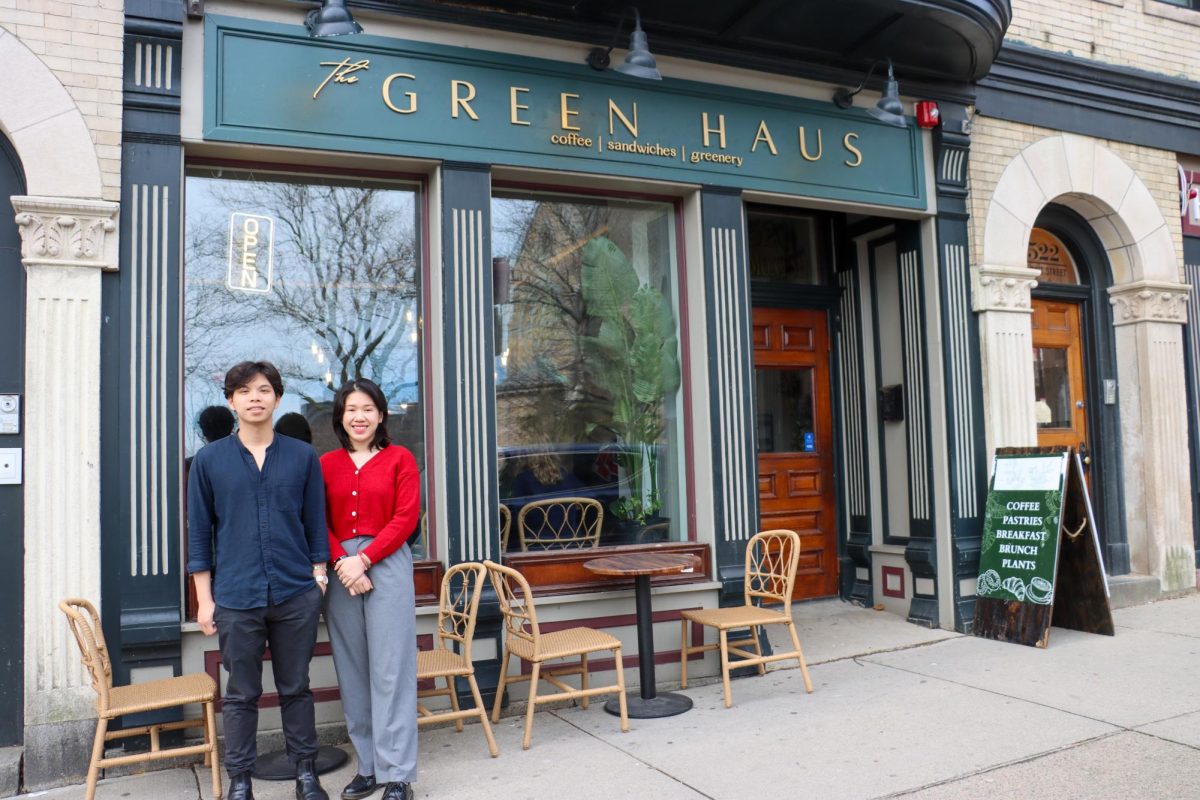By Maggie Dolan, news staff
Friends of the late civil rights activist Rev. Fred Shuttlesworth, school advocates and educators met at the Omni Parker House Monday morning for a round-table forum honoring the reverend and discussing civil rights and school choices.
“We shouldn’t act like choice is some big scary thing,” said Kenneth Campbell, Louisiana executive director for IDEA Public Schools. “The only reason it’s scary is now we’re talking about giving poor people choice.”
Campbell manages college-preparatory charter schools throughout Louisiana, and came to Boston to speak in the Pioneer Institute’s civil rights panel entitled, “A Fire You Can’t Put Out.”
Shuttlesworth died in 2011 at the age of 89, after a lifetime as a Baptist minister and a leader in the civil rights movement alongside Martin Luther King Jr. The name of the event was borrowed from Andrew Manis, another speaker in the forum, who wrote Rev. Shuttlesworth’s biography, A Fire You Can’t Put Out: The Civil Rights Life of Birmingham’s Reverend Fred Shuttlesworth, in 1999.
“When you’re writing a biography, you want something that captures the spirit of the person,” Manis said. “And that’s Fred: A fire, inextinguishable, which persisted throughout a lifetime in the face of all kinds of danger.”
Rev. Liz Walker, pastor of Roxbury Presbyterian Church, moderated the forum discussion about education’s continuation as a civil rights issue. The panel members agreed that, despite Massachusetts’ reputation for having great schools, the state does not yet have the system figured out.
“My church is in a neighborhood of the least, and the lost and the left behind,” Walker said. “My children who come to our tutoring program can’t read. They have no math skills, but they are going to school every day.”
Members of the forum highlighted the importance of parents’ abilities to be involved in their children’s educations, both in choosing which school is best for their child and in effective communication between schools and parents.
Cara Stillings Candal, director of research and curriculum for the National Academy of Advanced Teacher Education, talked about the difference between parents knowing what good schools exist in the Boston area and actually being able to send their children there.
“If you want parents to be engaged in the education of their children then give them the avenues to make meaningful choices for their children,” Candal said. “To be able to facilitate choice you have to have real choice exist in the first place.”
The speakers discussed several strategies for creating such meaningful choices for students, in giving them more and better options than just their neighborhood schools. Ideas included improving public-charter school relationships and providing more vouchers so that parents can choose to send their children to charter or private schools.
Panelists focused on the need to get students into the right programs for their individual needs, and noted institutional flaws that make prioritizing students in the school system a challenge. Jeffrey Riley, superintendent of Lawrence Public School District, said it takes more than just arguing about which policies are best to solve problems.
“If 51 percent of American public school kids are living at or near the poverty line, and we as a country don’t step in and do something beyond which mode is going to work, we’re going to be in a lot of trouble,” Riley said.
All panelists agreed that school choice needs to be focused back on the parents and students, who want nothing more than a good education. Campbell said prioritizing students and their individual needs is crucial to bringing about equality in schools and society.
“Choice cannot be an end. It’s a means,” he said. “It’s a means to get that quality education that everyone talks about.”
Shuttlesworth’s widowed wife, Sephira, also spoke in the forum, giving tribute to her husband’s life and passion for his work.
“On a personal level, of course we still miss him day by day,” she said. “But on a political level, he is needed right about now. I find myself asking on a regular basis, ‘What would Shuttlesworth do? How can we keep his spirit alive?’”
Photo by Jonathan Northcott














